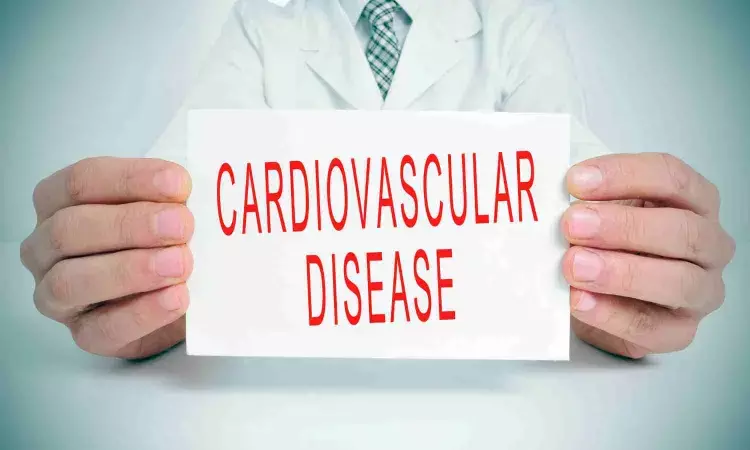- Home
- Medical news & Guidelines
- Anesthesiology
- Cardiology and CTVS
- Critical Care
- Dentistry
- Dermatology
- Diabetes and Endocrinology
- ENT
- Gastroenterology
- Medicine
- Nephrology
- Neurology
- Obstretics-Gynaecology
- Oncology
- Ophthalmology
- Orthopaedics
- Pediatrics-Neonatology
- Psychiatry
- Pulmonology
- Radiology
- Surgery
- Urology
- Laboratory Medicine
- Diet
- Nursing
- Paramedical
- Physiotherapy
- Health news
- Fact Check
- Bone Health Fact Check
- Brain Health Fact Check
- Cancer Related Fact Check
- Child Care Fact Check
- Dental and oral health fact check
- Diabetes and metabolic health fact check
- Diet and Nutrition Fact Check
- Eye and ENT Care Fact Check
- Fitness fact check
- Gut health fact check
- Heart health fact check
- Kidney health fact check
- Medical education fact check
- Men's health fact check
- Respiratory fact check
- Skin and hair care fact check
- Vaccine and Immunization fact check
- Women's health fact check
- AYUSH
- State News
- Andaman and Nicobar Islands
- Andhra Pradesh
- Arunachal Pradesh
- Assam
- Bihar
- Chandigarh
- Chattisgarh
- Dadra and Nagar Haveli
- Daman and Diu
- Delhi
- Goa
- Gujarat
- Haryana
- Himachal Pradesh
- Jammu & Kashmir
- Jharkhand
- Karnataka
- Kerala
- Ladakh
- Lakshadweep
- Madhya Pradesh
- Maharashtra
- Manipur
- Meghalaya
- Mizoram
- Nagaland
- Odisha
- Puducherry
- Punjab
- Rajasthan
- Sikkim
- Tamil Nadu
- Telangana
- Tripura
- Uttar Pradesh
- Uttrakhand
- West Bengal
- Medical Education
- Industry
Narcolepsy a risk factor for cardiovascular disease and adverse cardiac events, suggests study

Two new studies to be presented at the SLEEP 2024 annual meeting show that narcolepsy is an independent risk factor for cardiovascular disease and adverse cardiac events.
Results show that people who have narcolepsy, compared with those without narcolepsy, had a 77% increased risk of any cardiovascular disease and an 82% increased risk of major adverse cardiovascular events. Their risk of stroke was two times higher, and they also had a 64% increased risk of heart failure or myocardial infarction, and a 58% increased risk of atrial fibrillation. In a separate analysis of the same study population that controlled for the use of stimulants, oxybates, and wake-promoting agents at baseline, as well as time-varying stimulant use, people who have narcolepsy had an 89% higher risk of cardiovascular disease and a 95% higher risk of major adverse cardiac events.
“Through a carefully designed study that integrates propensity score matching, we have uncovered compelling evidence about the relationship between narcolepsy and cardiovascular disease,” said co-lead author Christopher Kaufmann, who has a doctorate in public mental health and is an assistant professor in the department of health outcomes and biomedical informatics at the University of Florida College of Medicine in Gainesville. “Even after accounting for influential confounding factors like diabetes and obstructive sleep apnea, our findings persistently underscore the significant association between narcolepsy and cardiovascular disease,” added co-lead author Dr. Rakesh Bhattacharjee, the director of pediatric sleep medicine at Rady Children's Hospital-San Diego and an associate professor of pediatrics at UC San Diego.
According to the American Academy of Sleep Medicine, narcolepsy is a central disorder of hypersomnolence primarily characterized by repeated daily episodes of an irrepressible need to sleep or lapses into drowsiness or sleep. In some cases, sleepiness manifests as sudden, irresistible sleep “attacks” that may occur in unusual situations such as eating or walking. People who have narcolepsy also may experience episodes of cataplexy, which involve the sudden loss of muscle tone with retained consciousness, along with hallucinations or sleep paralysis during the transition from wake to sleep.
The retrospective cohort studies used the 2005-2021 IBM® MarketScan® Commercial and Medicare Supplemental databases to identify people with a first diagnosis of narcolepsy and a comparison cohort of people without narcolepsy. Both study samples comprised 34,562 people with narcolepsy and 100,405 matched controls. The patients had a mean age of 40 years, and 62% were female.
The researchers controlled for the use of stimulants, oxybates, and other wake-promoting agents because these medications are commonly used to treat excessive daytime sleepiness associated with narcolepsy.
“Our investigation revealed a significant finding: the connection between narcolepsy and cardiovascular disease persisted even after accounting for stimulant use,” said lead author Munaza Riaz, who has a doctorate in pharmaceutical outcomes and policy and is a postdoctoral associate in the department of pharmaceutical outcomes and policy within the college of pharmacy at the University of Florida. “This suggests a direct correlation between cardiovascular disease and narcolepsy. Understanding the positive relationship between narcolepsy and cardiovascular disease independent of stimulants is meaningful for health care providers, especially when determining treatment options for patients.”
Reference:
Christopher Kaufmann, Munaza Riaz, Haesuk Park, Wei-Hsuan Lo-Ciganic, Debbie Wilson, Atul Malhotra, Emerson Wickwire, R Bhattacharjee, 0857 Evidence for an Independent Association of Cardiovascular Disease in Patients with Narcolepsy, Sleep, Volume 47, Issue Supplement_1, May 2024, Page A368, https://doi.org/10.1093/sleep/zsae067.0857.
Dr Kamal Kant Kohli-MBBS, DTCD- a chest specialist with more than 30 years of practice and a flair for writing clinical articles, Dr Kamal Kant Kohli joined Medical Dialogues as a Chief Editor of Medical News. Besides writing articles, as an editor, he proofreads and verifies all the medical content published on Medical Dialogues including those coming from journals, studies,medical conferences,guidelines etc. Email: drkohli@medicaldialogues.in. Contact no. 011-43720751


